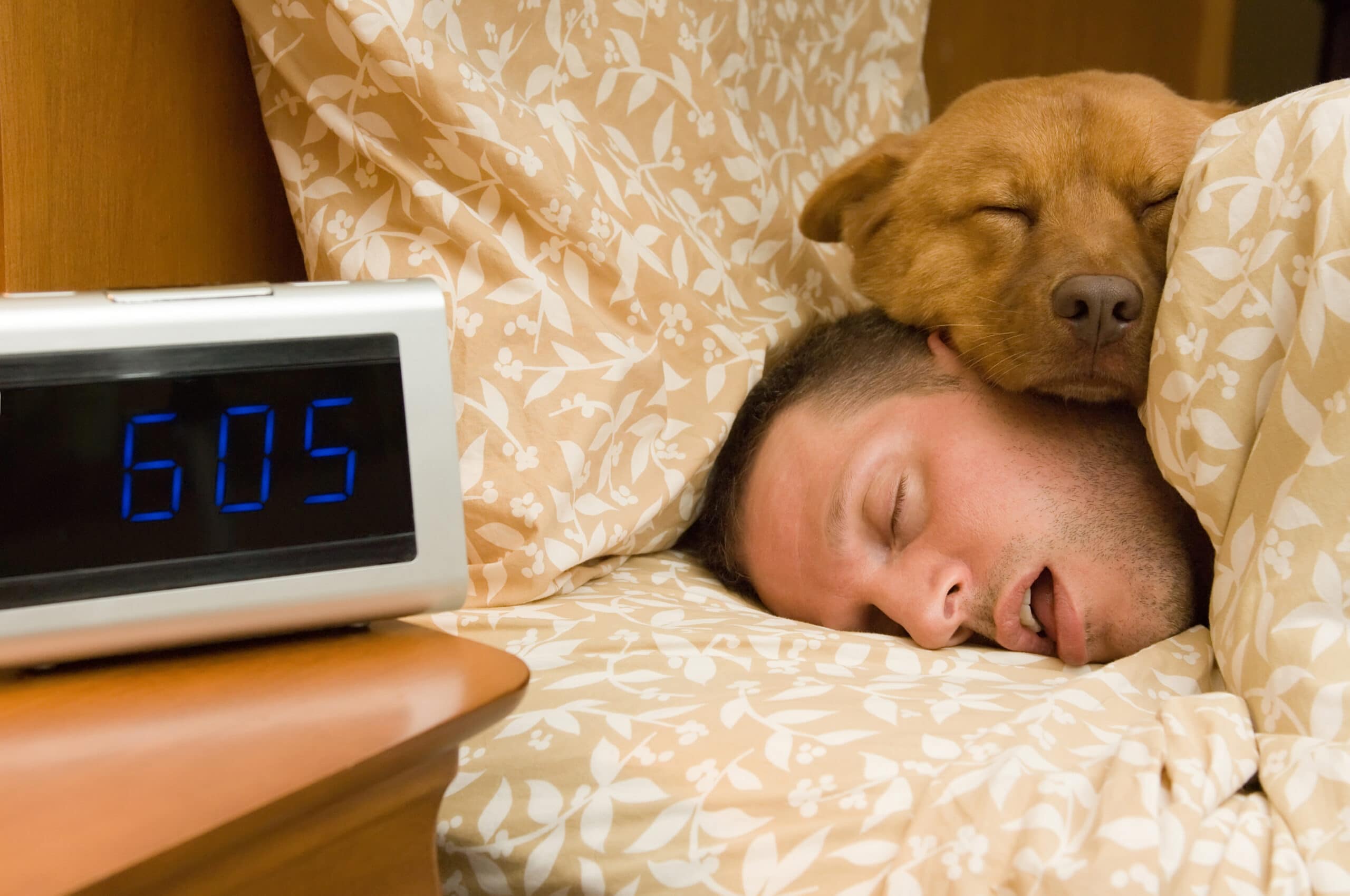
According to the U.S. Centers for Disease Control and Prevention, sleep is increasingly recognized as important to public health and safety, with sleep deprivation associated with injuries, mental illness, poor quality of life and well-being, increased health care costs and lost work productivity. People who don’t sleep well also are more likely to suffer from chronic diseases such as cardiovascular problems, high blood pressure, obesity and diabetes.
Jay McGuire, manager of the University of Louisville Physicians Sleep Center and a registered sleep technologist, said 70 million Americans have some sort of sleep disorder, whether it’s poor sleep or something more serious, like sleep apnea, and the bottom line is most people don’t get enough sleep.
“We are chronically sleep deprived as a society,” he said. “Most people get six hours or less. We really need seven and a half to eight hours a night.”
Tips to rest easy
How do you know if you have a sleep problem?
- You feel tired during the day
- You have trouble sleeping, or staying asleep
- Something unusual happens when you sleep
- You snore while you sleep
“Daytime fatigue is a big indicator that something is going on,” said McGuire. “If you have any of the issues above, this is an indicator that you may need to see a doctor.”
McGuire said one of the most common issues the Sleep Center sees is obstructive sleep apnea, which “most people have to some degree.” The airway collapses or becomes blocked during sleep, causing shallow breathing or pauses in breathing and disrupting sleep.
In some of the more serious cases, a person may have 500-700 episodes a night, waking up every few seconds. People may have episodes up to five times an hour and still be within normal range. But when they have more than five, they may see symptoms such as being sleepy during the daytime, waking up a lot during the night or frequently waking to use the restroom.
“Historically, it wasn’t realized that sleep apnea was a problem,” McGuire said. “But people with the disorder aren’t lazy, and they can’t overcome it on their own. It’s a specific physical condition that is causing them to be sleepy. The good news is, it’s very treatable,” he said.
Other sleep problems include insomnia; restless legs; REM behavior disorder, where people act out their dreams; sleepwalking or sleep talking; narcolepsy; hypersomnia; and shift work disorder.
How to get better sleep
McGuire has some tips for better sleep:
- Get regular exercise. “For it to be beneficial, you really need it three times a week,” he said. “It’s doesn’t even have to be the gym. Just some regular activity.” Just remember to avoid vigorous exercise within four hours of bedtime.
- Consolidate your sleep. Avoid sleeping a few hours here, or a few hours there. “Once you go to sleep, you need to stay asleep, and go through the appropriate cycles.” Keep a regular sleep cycle, even on weekends and holidays. Avoid naps and get at least 7.5-8 hours of sleep a night.
- Avoid alcohol, caffeine and nicotine four to six hours before bed. “Even if you sleep, it won’t be as deep as it should be because you have a stimulant in your system.”
- Practice “sleep hygiene.” Sleep hygiene refers to the sleeping environment, pre-bedtime behavior and medications. McGuire said most people don’t pay enough attention to their sleep environment. Among the things to consider:
- Ensure your mattress is comfortable. “There are no specifics on how hard or how soft, just whatever is comfortable for you.”
- Keep your bedroom dark, quiet and free of distractions. Your sleeping area should be free of electronic interference, and that means no TV, cell phones, computers or work materials. “If you watch TV before bed, you might get interested in something, and before you know it you’re watching a whole show.” The key is to avoid anything stimulating before bedtime.
- Keep the bedroom temperature cool. A “comfortably cool” temperature is best. “Most people have trouble sleeping if it’s too warm,” he said. “A cooler environment is more conducive to a good night’s sleep, as is a quiet and dark environment.”
- Avoid sleeping medications. Don’t use medications as a crutch for bad sleep behaviors, McGuire advised. “Some people may need them temporarily, but then it becomes a habit to help them get to sleep. We as a society like a quick fix. And once you develop bad sleep habits, they become hard to break. Also, you might sleep, but it doesn’t really address the problem that’s keeping you awake in the first place.”
- Practice a consistent bedtime ritual. Follow a specific bedtime ritual that signals to your body it’s time for bed. Brush your teeth and wash your face, for example. Eliminate activities such as doing work or playing games on your phone, which tend to be stimulating. Find a relaxing bedtime routine, such as taking a warm bath or reading.
- Know how eating before bedtime affects you. The old advice not to eat before bedtime isn’t really accurate, McGuire said. “Eating is OK, unless it’s a big meal, which might cause acid reflux when you lay down. Eating a small meal is OK, and can even help you get to sleep by alleviating your hunger and making you more comfortable. It all depends on how it affects you. Eating really doesn’t affect the quality of sleep.”
For those who work irregular hours such as nights or overnights, McGuire said it is best to stay on a permanent schedule if possible, rather than changing sleeping hours to accommodate personal activities or sleeping only when tired. Shift workers especially should focus on sleep hygiene, with a quiet, dark environment for daytime sleeping. Incorporating white noise, such as a fan, to drown out background noise can help, McGuire said. It’s also important to try to keep a work environment that is conducive to staying alert, with good lighting and a cool temperature.
“If you do all of this, and you still have issues, you may have a sleep problem, and that’s when it’s time to call us at the Sleep Center,” McGuire said.









